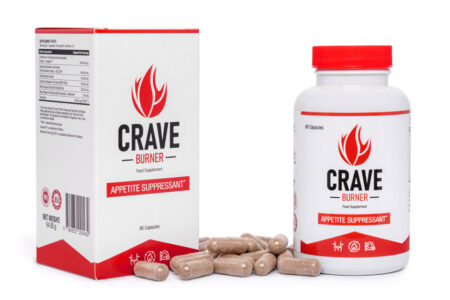
In Searching For Appetite Suppressants To Control Body Weight and struggling to control your appetite and manage your weight? You’re not alone. Many people find themselves searching for effective over the counter appetite suppressants to help curb cravings and reduce calorie intake. With so many options available, from supplements to curb appetite to appetite suppressant teas and pills, it can be overwhelming.
In this article, you’ll discover various strategies to control your body weight through appetite management. We’ll explore dietary approaches that can naturally suppress hunger, examine popular herbal and supplement options, discuss the science behind it.
By the end, you’ll have a better understanding of how to choose the right appetite suppressant supplement for your needs.
Table Of Contents
- 1. Understanding Hunger and Appetite To Control Body Weight
- 2. Dietary Strategies for Appetite Suppressants To Control Body Weight
- 3. Healthy Fats For Appetite Suppressant To Control Body Mass Weight
- 4. More On Healthy Fats For Appetite Suppressant To Control Body Mass Weight
- 5. Herbal and Supplement Options Appetite Suppressants To Control Body Weight
- 6. Garcinia Cambogia For Appetite Suppressant To Control Body Weight
- 7. Glucomannan For Appetite Suppressant To Control Body Weight
- 8. More On Glucomannan For Appetite Suppressant To Control Body Weight
- 9. In Conclusion In Searching For Appetite Suppressant To Control Body Weight
- 10. FAQs About Searching For Appetite Suppressant To Control Body Weight
1. Understanding Hunger and Appetite To Control Body Weight
To effectively control your body weight with appetite suppressants, it’s crucial to understand the difference between hunger and appetite. Hunger is a physical need for food, typically occurring when your blood sugar levels are low. You might experience a rumbling stomach, fatigue, and mood swings. Appetite, is your desire to eat, which can be influenced by cravings, boredom, or emotions rather than actual hunger.
Hormones Involved
Several hormones play a significant role in regulating hunger and appetite. Two primary hormones are ghrelin and leptin. Ghrelin, often called the “hunger hormone,” is produced by your stomach when it’s empty. It signals your brain that it’s time to eat, increasing appetite and gastric motility. Ghrelin levels are typically highest right before mealtimes and decrease when your stomach is full.
Leptin, produced by fat cells, acts as an appetite suppressant. It interacts with your brain to indicate that you have enough calories stored, inhibiting hunger signals. Leptin levels are generally higher in people with more body fat. However, many individuals with obesity may have developed a resistance to leptin’s appetite-suppressing effects.
Psychological Factors
Your mood and emotions can significantly impact your appetite. Stress, boredom, depression, or strong emotions can alter your desire to eat, even when you’re not physically hungry. Some people may experience increased appetite during heightened emotional states, while others might find it difficult to eat anything.
Emotional eating, or consuming food to regulate emotions rather than to satisfy hunger, is a common challenge. It can be triggered by stress, sadness, shame, anger, loneliness, or boredom. Recognizing these psychological factors is essential when considering appetite suppressant pills or other methods to control your food intake.
Environmental Influences
Your environment plays a crucial role in shaping your eating habits and appetite. The availability of food, social settings, and cultural norms can all impact your desire to eat. For instance, being around friends or family during mealtimes might lead you to eat more than when dining alone. The smell of delicious food or seeing appetising advertisements can also stimulate your appetite, even if you’re not physically hungry.
Sleep habits can influence the hormones that control appetite, potentially leading to weight gain. Poor sleep can increase ghrelin levels, producing greater feelings of hunger, while decreasing leptin levels.
In conclusion, understanding the complex interplay between hunger, appetite, hormones, psychological factors, and environmental influences is crucial when considering over the counter appetite suppressants or other methods to control your body weight. By recognizing these various factors, you can make more informed decisions about your eating habits and choose the most effective appetite suppressant supplements for your needs.
2. Dietary Strategies for Appetite Suppressants To Control Body Weight
When searching for over the counter appetite suppressants to control body weight, it’s essential to consider dietary strategies that can naturally help you manage hunger and promote satiety. By incorporating specific types of foods into your meals, you can effectively curb your appetite and support your weight management goals. Click here for over counter appetite suppressants to control your body weight
Protein-Rich Foods
Protein plays a crucial role in appetite control and weight management. Consuming protein-rich foods can help you feel fuller for longer periods, reducing the urge to snack between meals. Research has shown that diets containing higher amounts of protein (ranging from 1.1 to 1.6 g protein/kg/day) can lead to greater reductions in total energy intake and body weight compared to lower protein diets.
To incorporate more protein into your diet, consider adding lean meats, fish, poultry, eggs, and plant-based sources like tofu and legumes to your meals. For instance, starting your day with a protein-rich breakfast, such as eggs or Greek yoghurt, can help you feel more satisfied throughout the morning and potentially reduce your overall calorie intake for the day.
Complex Carbohydrates
Complex carbohydrates are digested more slowly, helping you feel fuller for longer and providing a steady release of energy. They also tend to be rich in fibre, which further contributes to satiety.
Some excellent sources of complex carbohydrates include:
- Whole grains like quinoa, buckwheat, and whole-wheat pasta
- Fibre-rich fruits such as apples, berries, and bananas
- Vegetables like broccoli, leafy greens, and carrots
- Legumes, including beans, peas, and lentils
These foods not only help control your appetite but also provide essential vitamins, minerals, and fibre that support overall health. By choosing complex carbohydrates over simple, refined options, you can better manage your blood sugar levels and reduce cravings for sugary foods.
3. Healthy Fats For Appetite Suppressant To Control Body Mass Weight
Contrary to popular belief, including healthy fats in your diet can actually help control your appetite and support weight management. While fats have been traditionally viewed as less satiating than carbohydrates and proteins, recent research suggests that certain types of fats can have a positive impact on appetite regulation.
Medium-chain triglycerides (MCTs), found in coconut oil and some dairy products, have been shown to have a more satiating effect compared to long-chain triglycerides. Studies have demonstrated that consuming MCTs can lead to reduced energy intake and improved weight loss outcomes.
Additionally, combining fats with fibre can enhance their satiating potential. For example, adding a small amount of healthy fat, such as avocado or nuts, to a fibre-rich salad can help you feel more satisfied after your meal.
4. More On Healthy Fats For Appetite Suppressant To Control Body Mass Weight
When incorporating fats into your diet, focus on sources of unsaturated fats like olive oil, nuts, seeds, and fatty fish. These not only contribute to satiety but also offer various health benefits.
By implementing these dietary strategies and incorporating protein-rich foods, complex carbohydrates, and healthy fats into your meals, you can naturally suppress your appetite and support your weight management goals. These approaches can be effective alternatives or complements to over the counter appetite suppressants, helping you control your body weight through sustainable dietary choices.
5. Herbal and Supplement Options Appetite Suppressants To Control Body Weight
When searching for over the counter appetite suppressants to control body weight, you might come across various herbal and supplement options. These natural alternatives have gained popularity among those looking to manage their appetite and support weight loss efforts. Let’s explore some of these options and their potential effects on appetite control.
Fenugreek
Fenugreek is an herb that has been used for centuries in alternative medicine and as a culinary spice. It’s known for its strong maple-like flavour and is commonly found in Indian cuisine. Recently, fenugreek has gained attention as a potential weight loss aid.
Some studies suggest that fenugreek may help suppress appetite and promote feelings of fullness. The seeds contain soluble fibre, which can slow down digestion and the absorption of carbohydrates, potentially leading to reduced calorie intake. In one study, participants who consumed fenugreek tea experienced less hunger and a greater feeling of fullness compared to those who didn’t.
You can incorporate fenugreek into your diet by using it as a spice in cooking, adding the seeds to salads, or drinking fenugreek tea. However, it’s important to note that while fenugreek is generally considered safe when consumed in amounts typically found in food, higher doses in supplement form may cause mild side effects such as digestive discomfort.
6. Garcinia Cambogia For Appetite Suppressant To Control Body Weight
Garcinia cambogia has become a popular ingredient in many appetite suppressant supplements. This tropical fruit, also known as Malabar tamarind, contains hydroxycitric acid (HCA) in its peel, which is believed to have weight loss properties.
The active compound, HCA, is thought to work by blocking an enzyme called citrate lyase, which your body uses to make fat. Additionally, it may increase levels of serotonin in the brain, potentially reducing hunger and cravings.
While some studies have shown promising results, the overall evidence for garcinia cambogia’s effectiveness as an appetite suppressant is mixed. A review of several studies found that participants taking garcinia cambogia supplements lost an average of 2 pounds more than those taking a placebo. However, other research has shown little to no effect on appetite or weight loss.
If you’re considering garcinia cambogia as an appetite suppressant supplement, it’s essential to be aware of potential side effects. Some people may experience headaches, digestive issues, or skin rashes. In rare cases, more severe side effects have been reported, so it’s crucial to consult with a healthcare professional before adding this supplement to your routine.
7. Glucomannan For Appetite Suppressant To Control Body Weight
Glucomannan is a type of soluble fibre derived from the root of the konjac plant. It has gained attention as a potential appetite suppressant due to its ability to absorb water and expand in the stomach, promoting feelings of fullness.
When consumed, glucomannan can absorb up to 50 times its weight in water, forming a gel-like substance in your digestive system. This gel slows down the emptying of your stomach, which may help you feel fuller for longer periods and potentially reduce overall calorie intake.
Some studies have shown promising results for glucomannan as an appetite suppressant. A review of several studies found that taking glucomannan supplements resulted in short-term weight loss of up to 3 kg (6.6 pounds) over 12 weeks. However, it’s important to note that the results were not statistically significant, and more research is needed to confirm its effectiveness.
8. More On Glucomannan For Appetite Suppressant To Control Body Weight
When using glucomannan as an appetite suppressant supplement, it’s typically recommended to take it before meals with plenty of water. However, be aware that it may cause side effects such as bloating, gas, or diarrhoea in some individuals.
While these herbal and supplement options show potential as appetite suppressants, it’s crucial to approach them with caution. The effectiveness and safety of these supplements can vary from person to person, and more research is needed to fully understand their long-term effects. Always consult with a healthcare professional before adding any new supplements to your diet, especially if you have existing health conditions or are taking medications.
Remember that appetite suppressants should be used as part of a comprehensive approach to weight management, which includes a balanced diet, regular physical activity, and healthy lifestyle habits. These supplements are not magic solutions and should not replace a nutritious diet and exercise regimen.
9. In Conclusion In Searching For Appetite Suppressant To Control Body Weight
Controlling your appetite is a key factor in managing your weight effectively. Throughout this article, we’ve explored various strategies to curb hunger, from dietary approaches to herbal supplements. Understanding the complex interplay between hormones, psychology, and environment has a significant impact on how we approach appetite control. By incorporating protein-rich foods, complex carbs, and healthy fats into your diet, you can naturally feel fuller for longer periods.
While over-the-counter appetite suppressants like fenugreek, garcinia cambogia, and glucomannan show promise, it’s crucial to approach them carefully. Always chat with a healthcare professional before trying new supplements, especially if you have existing health conditions. Remember, these aids should complement a balanced diet and regular exercise, not replace them. In the end, sustainable weight management comes down to making informed choices about what you eat and how you live your life.
10. FAQs About Searching For Appetite Suppressant To Control Body Weight
What tablets are available to help reduce my appetite?
Phentermine (Adipex-P, Lomaira) is a prescription medication that decreases appetite, aiding in weight loss by reducing hunger or making you feel fuller for longer. Additionally, Phentermine is available in combination with topiramate under the brand name Qsymia for enhanced weight loss effects.
What medications do doctors recommend for losing appetite?
Several medications are prescribed for weight loss, including Bupropion-naltrexone (Contrave), Liraglutide (Saxenda), Orlistat (Xenical, Alli), Phentermine-topiramate (Qsymia), Semaglutide (Wegovy), and Setmelanotide (Imcivree).
Which over-the-counter pill is most effective for weight loss?
The only over-the-counter weight loss medication approved by the FDA is Alli (orlistat). Other non-prescription products are classified as supplements and lack regulatory approval from the FDA, meaning their safety and efficacy are not guaranteed based on rigorous studies.
Which vitamins can help reduce hunger?
Incorporating sufficient amounts of fibre and protein in your diet can naturally help suppress your appetite. Certain vitamins and minerals, such as calcium and vitamin D, may also contribute to appetite control.




